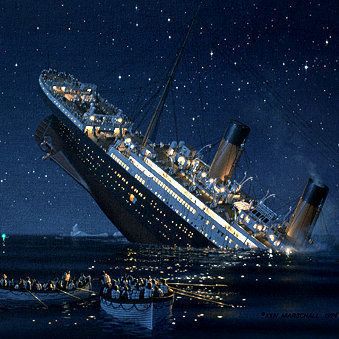In the annals of the Titanic’s ill-fated voyage, one name stands out among the unlikely survivors—Charles Joughin, the chief baker. As the British Titanic Inquiry sought answers about the sinking, Joughin’s interrogation painted a peculiar picture of his actions during the ship’s tragic descent into the icy depths. His narrative, marked by a blend of duty and an unconventional approach to survival, unveils a story that defies the norms of maritime tragedy.
In the heart of the maritime disaster, Joughin found himself in a position of authority as the chief baker. When queried about his actions during the chaos, his responses unveiled a stark reality—Joughin admitted to tossing children into lifeboats, a desperate act amidst the sinking ship’s pandemonium. The chilling revelation of him considering throwing a mother into the lifeboat, only for her to miss her footing, adds a layer of complexity to Joughin’s role in those critical moments.
Despite being in charge of a lifeboat, Joughin chose not to board, citing a concern about setting a bad example for the men under his charge. As fate would have it, when he returned to the lifeboat’s location, it had departed. Joughin’s subsequent decision to descend below decks for a drink raises eyebrows and becomes a pivotal point of inquiry. The revelation that he sought solace in spirits during a time of crisis becomes a subject of scrutiny, with implications that his choice of drink may have played a role in his survival.
Joughin’s penchant for returning to his cabin for shots of heavy liquor, even in the midst of the disaster, adds a layer of intrigue to his survival narrative. As Mr. Cotter pressed for details on the type of spirits consumed, emphasizing its potential significance in the unfolding drama, the implication arose that Joughin’s actions might have been influenced by more than just a desire for a calming drink.
In the frigid waters of the North Atlantic, where temperatures hovered around -2°C (26.4°F), the conventional wisdom would suggest that a person under the influence of alcohol faces heightened risks of hypothermia. However, Joughin’s survival contradicted expectations. The extreme cold countered the vasodilation effect of alcohol, maintaining blood flow to vital organs and potentially contributing to his ability to endure two hours in the icy sea.
Joughin’s firsthand account of his time in the water reveals a surprising calmness and an absence of pain, defying the conventional narrative of the agony associated with exposure to such cold temperatures. His resilience became evident when, after two hours in the frigid sea, he managed to climb aboard an overturned lifeboat. Subsequently rescued by a passing lifeboat, Joughin emerged as a testament to the unpredictable dynamics of survival in the face of maritime disaster.
Charles Joughin’s survival tale amid the Titanic tragedy challenges preconceived notions of how one navigates perilous waters. His unorthodox actions, from tossing children into lifeboats to seeking solace in spirits, paint a portrait of resilience shaped by unconventional choices. As the Titanic slipped beneath the waves, Joughin’s survival echoed a narrative of adaptability and, perhaps, a touch of liquid courage.


